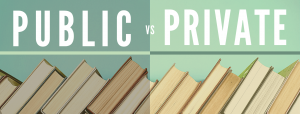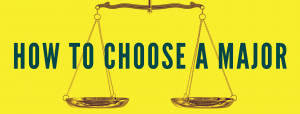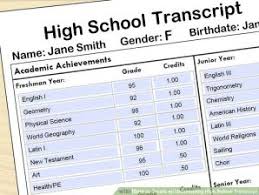
So, you’re interested in applying for college but need a little guidance when it comes to comparing and contrasting public and private institutions. Both college types have their perks and drawbacks, but it ultimately boils down to who you are as a student and what you plan to get out of higher education learning in the long run. With that said, let’s breakdown the primary differences between public and private schools.
Public College
Put simply, public colleges are state government-funded institutions. NC State, UNC-Chapel Hill, App State, UNC Charlotte, and many others make up this category in North Carolina. Taxes paid by residents of the state help fund public universities, resulting in the government providing money to partly cover these institutions’ cost of attendance. Because of this statewide government assistance, tuition for in-state residents is a lot cheaper compared to out-of-state tuition. For instance, NC State — the largest public school in North Carolina — quoted an in-state tuition price of $25,636 in 2020, while their out-of-state tuition price came in at $45,755. While more affordable than most private schools, public schooling is still a big investment. As a result, applying for financial aid and scholar is an important step to take when pursuing any college.
When it comes to population sizes, public colleges will tend to have larger student bodies; these schools are typically home to the auditorium-style lecture halls that you may have seen on TV or online, with some classes holding up to 200 students! Though, there are smaller public schools available that cater to students searching for a more close-knit experience. So, when it comes to class sizes, keep in mind that large public universities may not be as intimate as private colleges. However, the wide variety of facilities available on many public campuses provide students with the tools necessary to succeed. Additionally, with larger student bodies comes a wider variety of degree options to choose from; this is especially useful for those who are unsure about their degree path.
You’ll find a significant amount of in-state students at public schools, so you may run into someone from your hometown or surrounding area. Public schools — especially the larger varieties — are also known for the many extracurricular activities they have to offer (e.g. sports teams, greek life, etc.) These aspects are great stress reducers and create a sense of community and camaraderie among students.
COVID-19 Message
Now more than ever, it is important to stay safe physically and mentally when attending school. For more information about the NC public school response to COVID-19 visit https://www.nc.gov/covid-19/higher-education-covid-19-resources.
Private College
Private colleges are not government-funded and receive the bulk of their money from private donors, leading to higher tuition costs compared to most public institutions. In turn, private school students must pay the full cost of attendance without state assistance. For instance, Duke University — a popular and highly sought-after private school here in NC — quoted an in-state and out-of-state tuition cost of $80,470 in 2020. Again, this is where applying for financial aid and scholarships will come in handy.
The class and campus sizes characteristic of private colleges are noticeably smaller than public schools on average, leading to a more personalized learning experience. Because of this, students enrolled in private colleges will often have a closer relationship with their professors and will attend more discussion-based courses than public school students. While private schools tend to offer a limited variety of degree options, the ability to craft a major to fit specific interests is a common selling point for students seeking to explore their academic and personal individuality.
Unlike public or “state” universities, private colleges — especially prestigious institutions — tend to draw in applicants from around the country, resulting in a more diverse student body. Of course, this aspect will vary depending on the college, but it is important to keep in mind that public universities largely admit in-state residents.
COVID-19 Message
No matter where you attend college, your health and well being should be your number one priority. For more information about private school COVID-19 responses, visit https://ncadmin.nc.gov/public/private-school-information/private-school-faqs.
__________
Now that you’ve made it to the end, keep in mind that these comparisons don’t cover the full scope of public and private institutions and no two schools are exactly alike. With that said, it is important to know yourself and what you desire in a college while actively researching to find the schools that suit your needs and wants. And though it may seem impossible sometimes, trust me; you’ll find the place just right for you.















